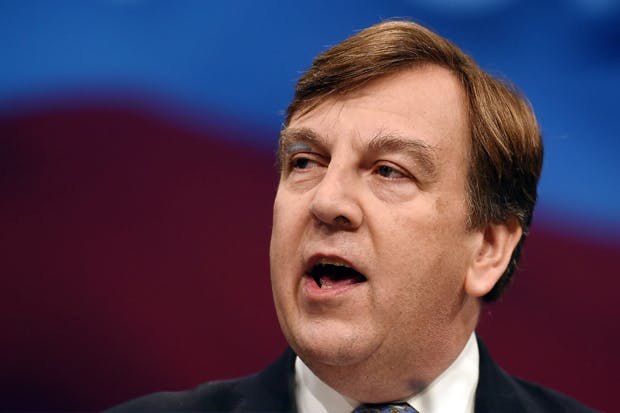For weeks, Westminster has been full of rumours about the private life of a certain cabinet member. It was said he had started to visit a dominatrix in Earl’s Court but ended up falling in love with her and taking her to official functions. Like a Westminster remake of the film Pretty Woman, in fact, but with the Culture Secretary, John Whitting-dale, playing the part of Richard Gere. There was much comment in Parliament about this, and jokes about what London is coming to if an MP has to travel all the way to Earl’s Court for such services, when they used to be available a stone’s throw away from the Commons. And on it went.
The story did not appear in the press for a simple reason: it was, in most part, an invention. Politicians gossip like fishwives, and political journalists know them to be deeply unreliable sources about each other’s private lives. Approached by the BBC, Mr Whittingdale was forced to disclose the rather embarrassing truth: about two years ago, he met a woman of a similar age on a dating website. He discovered later that she was a sex worker, so he ended the relationship after six months. Four newspapers had established as much but, seeing no public interest, decided not to publish.
All of this has infuriated Hacked Off, the pressure group that lost its campaign for state regulation of the press. The episode undermines their portrayal of British newspapers as being staffed by ‘feral beasts’. The phrase is Tony Blair’s, but it encapsulates the old cliché that the press gleefully publishes all manner of salacious gossip, true or not, and that only the sober hand of government can impose proper standards. Now, Hacked Off is making the opposite case: that a prudish British press is violating the public’s right to know about who John Whittingdale met on Match.com.
Labour’s demands that Whittingdale recuses himself from the issue of press regulation is intended to develop Hacked Off’s conspiracy theory that Whittingdale has gone easy on the press because he was being blackmailed. It overlooks a crucial point, though: the Culture Secretary has no power over the press, nor does anyone else in the government. Britain’s press is free, and journalists can be as rude as they like to ministers without fear of reprisal. There is quite simply no mechanism of reprisal — because the press fought off David Cameron’s disgraceful attempt to impose press regulation.
It is now three years since this magazine declared it would have no part in the government’s proposed Royal Charter on press regulation. All other newspapers made the same decision. They did so to preserve an important principle: that the press should never become the government’s train set. It was Whittingdale’s predecessor, Sajid Javid, who decided the government would draw a veil over the Leveson inquiry and drop any ambition to regulate the press. By the time Whittingdale arrived in his job, the issue was off the agenda.
It’s true that Whittingdale could have decided to go after the press a second time, apropos of nothing, with a new Leveson inquiry or perhaps fines to punish newspapers. But he did not, because his predecessor had declared the whole agenda to be dead — or, as he put it, ‘Our job is done as a government.’ Hacked Off had hoped for a second Leveson inquiry, supposedly to crawl over the mass criminality exposed by the first.
But as it turned out, there have been hardly any prosecutions and no evidence of systematic illegality among journalists. There has been no great let-off for the press under Whittingdale.
The circulation of British newspapers has fallen by a third since the hacking scandal broke. The idea of an all-powerful press deciding which politicians to make and which to destroy is now impossible to reconcile with the sorry state of Fleet Street.The Independent has disappeared from the newsagents; others will follow. The Sun and the Daily Mail, Britain’s two most popular newspapers, are now bought by just 3 per cent of the adult population; just 6 per cent say they get their news from each title. The latest Ofcom report shows where the power now lies: some 48 per cent get their news from BBC1 alone. Even when it comes to the written word, the BBC is four times bigger than any newspaper, with 23 per cent saying they use its website and apps.
How sad it would have been if, against such a backdrop, the press had lost its nerve and signed up to Cameron’s Royal Charter. Had this happened, editors would genuinely have had reason to fear the wrath of the Culture Secretary. For those interested in the wilder theories about Mr Whittingdale, there’s always social media — a forum in which conspiracy theorists are advancing with ever-more improbable scenarios.
Sir Alan Moses, chairman of the Independent Press Standards Organisation, put it well when he addressed the London Press Awards earlier this month. Now more than ever, he said, ‘We need edited journalism — and not the unedited flatulence of the online troll.’ To this, we should add the fantasies of Hacked Off and its associated conspiracy theorists. Once again, the British free press has been shown to be more responsible than its enemies.
Got something to add? Join the discussion and comment below.
Get 10 issues for just $10
Subscribe to The Spectator Australia today for the next 10 magazine issues, plus full online access, for just $10.














Comments
Don't miss out
Join the conversation with other Spectator Australia readers. Subscribe to leave a comment.
SUBSCRIBEAlready a subscriber? Log in